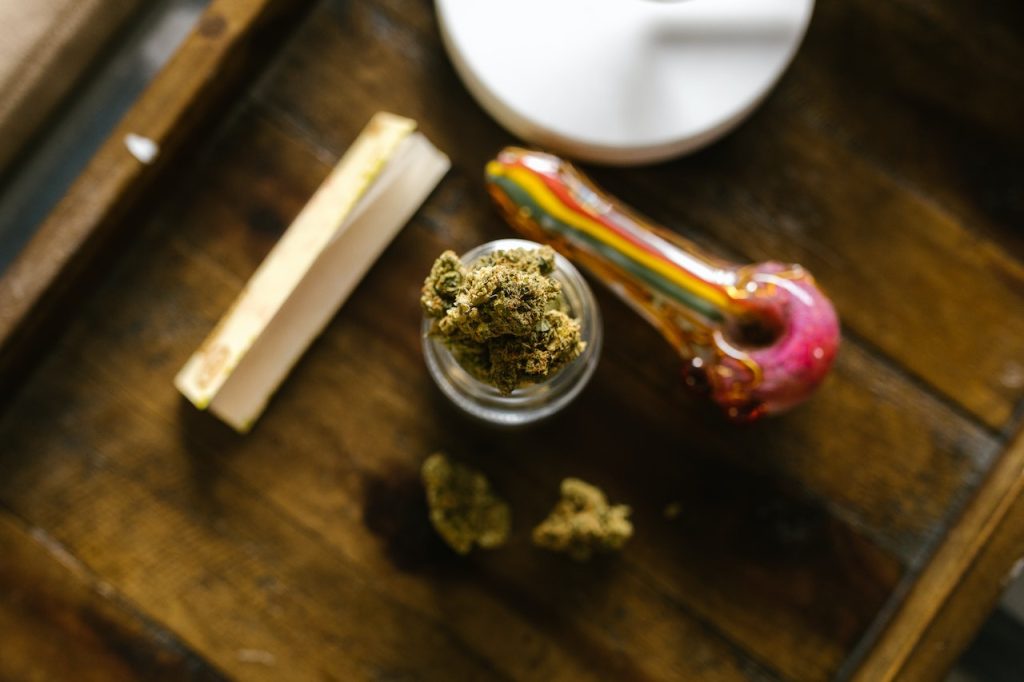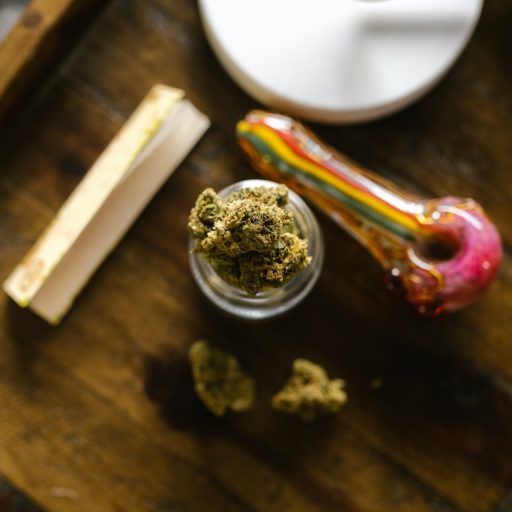Is CBD Alright for Individuals With Disease?

Cannabidiol, otherwise called CBD, is one of numerous synthetic compounds found in the marijuana plant. It has been promoted in a few web-based gatherings as an elective therapy, and, surprisingly, a fix, for some sicknesses, including malignant growth. Furthermore, certain individuals with disease say that CBD has helped them as a correlative treatment in dealing with their side effects and aftereffects from standard malignant growth treatment.
However there’s tiny examination around CBD and its utilization in treating individuals with malignant growth. This is what to be aware of what CBD is and what science at present shows about whether it’s protected and compelling for individuals with disease to utilize.
What is CBD?
CBD is 1 of the many synthetic compounds found in the blossoming marijuana plant. CBD doesn’t have the psychoactive, or mind-changing, impacts of one more substance found in marijuana called tetrahydrocannabinol (THC). THC is the compound that makes individuals experience a “high.” CBD, then again, is being utilized by some to assist with facilitating agony, uneasiness, and rest issues.
CBD comes from pot plants called hemp that are explicitly developed with elevated degrees of CBD and low degrees of THC. Weed plants developed with elevated degrees of THC are typically called pot. CBD comes from oil that is removed from the pot plant. That oil can then be ingested as a fluid, a container, a sticky, or breathed in through vaping. It can likewise be added as a fixing in such items as salves and skin patches.
There is much about CBD that is as yet unclear. It has generally gone unstudied in light of the fact that, until 2018, it was viewed as a timetable I drug by the U.S. Drug Implementation Organization (DEA). A timetable I drug is a medication that has been proclaimed unlawful by the DEA in light of wellbeing worries over its true capacity for misuse and in light of the fact that there is no acknowledged clinical use for it. Then, at that point, in September 2018, the DEA refreshed CBD’s status to turn into a timetable V medication. Plan V medications have a lower potential for misuse and are considered to have some clinical use.
There is as of now 1 CBD treatment endorsed by the U.S. Food and Medication Organization (FDA) called Epidiolex, which is utilized to treat an uncommon and extreme type of epilepsy in kids. There are not as of now any FDA-supported CBD prescriptions for treating disease or symptoms of malignant growth medicines.
Might CBD at any point assist individuals with disease?
Studies to address this question are in progress. A few researchers are concentrating on whether CBD could let some free from the symptoms of malignant growth and its treatment, like torment, sleep deprivation, uneasiness, or sickness. Different researchers are concentrating on whether CBD might actually sluggish or stop the development of disease.
Until this point, no huge scope studies have shown CBD to have benefits for the therapy of individuals with disease. Most examinations that have been finished assessing CBD as a malignant growth treatment were in mice or in human cells in the lab. For example, there are a few examinations that have shown that CBD restrains the development of malignant growth cells in mice with cellular breakdown in the lungs or colon disease. Another review showed that CBD, along with THC, killed glioblastoma disease cells in the lab. Be that as it may, no examinations have been directed in individuals with disease.
There have been a few examinations that show that CBD, alone or along with THC, may ease torment, sleep deprivation, or nervousness, yet these investigations were not well defined for individuals with malignant growth. While no examinations to date have shown that CBD facilitates these aftereffects explicitly in individuals with disease or individuals getting malignant growth therapy, certain individuals with malignant growth have announced benefits in taking CBD, like assisting with queasiness, regurgitating, sorrow, and opposite secondary effects. As per ASCO rules, your PCP might consider recommending cannabinoids for ongoing torment the executives on the off chance that you live in a state where it is lawful. Nonetheless, ASCO rules express that there isn’t sufficient proof to help the utilization of cannabinoids for forestalling sickness and retching in individuals with disease getting radiation treatment or chemotherapy.
There are 2 manufactured marijuana drugs, nabilone (Cesamet) and dronabinol (Marinol or Syndros), that are FDA-supported to treat sickness and regurgitating connected with chemotherapy. These drugs are made in a research center.
Is CBD ok for individuals with disease?
You might find stories online of individuals examining the advantages of CBD as a disease treatment or as help for incidental effects. Kindly recall that such private stories, while they might be good natured, are shared without logical review and don’t comprise proof. The security adequacy of CBD for individuals with malignant growth actually must be demonstrated in huge, randomized, controlled clinical preliminaries.
It is likewise essential to take note of that a few examinations have shown that CBD could impede how your body processes disease drugs, called a medication collaboration. This could make malignant growth medicines more harmful or make them less viable. More examination is required on these impacts, as well. Therefore, consistently let your oncologist know if you’re contemplating utilizing CBD before you take it.
You may likewise be contemplating whether CBD is lawful in your space. A few states permit the deal and ownership of marijuana, including CBD and THC, for clinical and sporting use. Others have stricter guidelines, so state-by-state regulations ought to continuously be advanced prior to moving CBD across state lines. Things are more convoluted at the government level. In 2018, the U.S. government perceived that hemp can be developed and fabricated legitimately as a feature of the Ranch Act. Hemp can be utilized to make things like rope and attire, notwithstanding CBD oil. All in all, hemp is not generally a controlled substance, and that implies it isn’t directed by the public authority. This implies that shoppers need to assess the wellbeing and nature of CBD items all alone. Some CBD, for instance, may have a lot more elevated levels of THC than what is named.
The main concern is this: Consistently converse with your PCP first in the event that you’re contemplating utilizing CBD. Since the examination doesn’t yet uphold the utilization of CBD in assisting individuals with malignant growth, raising the point with your PCP prior to taking it is significant. There are a few clinical preliminaries in progress concentrating on the utilization of CBD in disease care, and you and your oncologist can talk through the potential advantages and dangers of you joining an exploration study to assist with finding replies to a portion of the inquiries concerning CBD, including whether it might diminish secondary effects or work on personal satisfaction.
